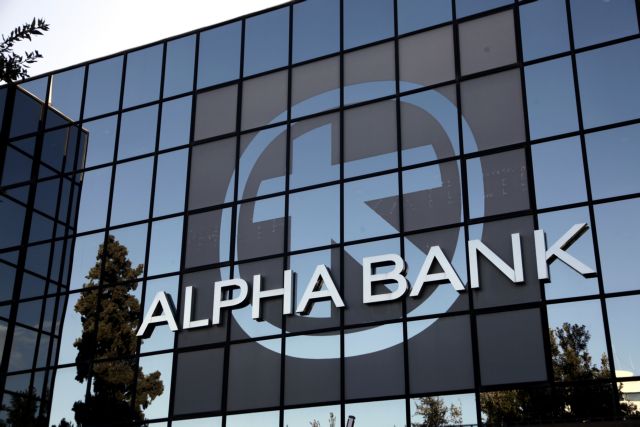
Alpha Bank refers to the inflationary pressures that the Greek economy is under in a recent study, while it tries to give an answer to whether the return of inflation is a temporary phenomenon.
According to the latest available ELSTAT data, the Harmonized Index of Consumer Prices (HICP) continued to grow on an annual basis for the third consecutive month. In particular, HICP inflation in August stood at 1.2%, up from 0.7% in July and 0.6% in June, with inflation based on the National Consumer Price Index reaching 1.9% in August.
Inflationary pressures are particularly visible in the prices of energy and in particular in oil and gas, as well as in the prices of commodities, raw materials and foodstuffs. The key question is whether the return of inflation is a temporary phenomenon due to the faster adjustment of demand than supply to a post-pandemic regularity, or a structural change with more permanent characteristics associated with the expansionary fiscal and monetary policy pursued on an international level.
As observed, during the pandemic, ie from March 2020 onwards, deflationary pressures were created in the country that came primarily from the negative contribution of prices for services and secondarily from the negative contribution of energy prices. This is due to the imposition of restrictive measures and therefore to the sharp decline in demand for services – most of which are based on social interaction – but also to movements that have led to lower energy prices.
From March this year, however, energy prices are following an upward trend, primarily as a result of base effects, creating inflationary pressures. Specifically, according to the latest available data, energy prices (+0.95 percentage points) contributed significantly to the increase in the price level in August, followed by prices for unprocessed and processed foods which contributed positively by 0 , 57 and 0.15 percentage points, respectively.
It is worth noting that food, processed and unprocessed, contributes positively to the rise in the price level in the last quarter. On the contrary, the contribution of industrial products (excluding energy) was negative in August (-0.26 percentage points), but also of services (-0.20 percentage points). In addition, according to the latest available data from the European Commission, consumer expectations for price trends in the next 12 months returned to positive ground for the first time since April 2020 (2.4 points), reaching, in August 2021 , 5.8 points, discounting strong inflationary pressures for the coming months.
The sharp rise in inflation
The sharp rise in inflation is a global phenomenon, which stems from the imbalance between supply and demand, resulting in the formation of excessive demand conditions at this stage. Despite the significant differences in the level of inflation between countries, which is mainly related to the speed of recovery of each economy from the pandemic crisis, there are factors that affect the global economy as a whole, exerting inflationary pressures. In summary, these factors are:
First, the sharp rise in energy prices, especially oil and gas. Restrictions on travel and global industrial activity in 2020 due to lockdown measures have resulted not only in a sharp decline in global travel traffic but also in a large reduction in oil and gas demand and consequently of their prices. The gradual normalization of economic activity in the current year, however, has led to an increase in demand, which fuels the rise in prices. It is noteworthy that, since the beginning of the year, the prices of Brent crude oil and natural gas have increased by 45% and 101% respectively (data until 17.09.2021), moving higher than the pre-pandemic crisis levels of January 2020.
Greece, as a net importer of oil and gas and a country with a significantly higher rate of energy dependence (74.1%, in 2019) compared to the European average (60.7%, in 2019), is burdened by rising prices as, inter alia, the trade deficit increases. In addition, the weakening of the euro against the dollar by 4% since the beginning of the year (data until 17.09.2021) has had an additional increasing effect on the energy costs of oil and gas, which are expressed in dollars. It is worth noting that, according to the latest data of ELSTAT, in July, the Import Price Index in the energy sector increased by 61.5% on an annual basis. Energy prices have risen sharply on an annual basis since April, dragging down harmonized inflation, while excluding energy prices returned to marginally positive ground after 14 months (+ 0.3% on an annual basis). basis, in August.
Secondly, the disruptions in the global supply chains. The recovery in global processing, from the second half of 2020, has resulted in increased demand for intermediate goods. It is noteworthy that, according to the World Trade Organization (“Information note on trade in intermediate goods: first quarter 2021”), China increased its exports of intermediate goods by 41% on an annual basis in the first quarter of 2021. However, the difficulties pandemic-related problems do not allow maritime freight to function properly, resulting in delays in container shipments. This results in a vertical increase in transport costs. Part of this increase is passed on to commodity and raw material prices and ultimately to final product prices. Indicatively, it is reported that the prices of wheat and cotton are increasing from the middle of the previous year, having exceeded the pre-pandemic levels . It is pointed out that the prices of some goods are further burdened, due to the existence of natural phenomena (eg heat, drought) which are attributed to climate change and result in their reduced production.
In Greece, the Import Price Index2 on intermediate goods increased by 7.8% on an annual basis in July, recording a steady upward trend since the beginning of the year. The increase in commodity prices started in April, to reach 3.1% on an annual basis, in August. On the contrary, the prices of services record a negative annual rate of change from June 2020.
In conclusion, inflationary pressures intensified due to (i) the rapid increase in demand for goods and services following the lifting of restrictive measures to stem the pandemic (demand inflation) and (ii) the increase in production costs as a result of malfunctions observed in supply chains, resulting in supply-side disruptions (cost inflation). The mismatch between increased demand and supply constraints creates excessive demand for goods and services, with the result that prices show an upward trend. The prevailing view among economic policy makers (ECB staff macroeconomic projections for the euro area, September 2021) is that rising inflation is a temporary phenomenon. However, the possibility of the disturbances lingering longer than expected cannot be ignored, which would force some companies to reduce their production, further increasing inflation costs, a development that would undermine the growth process.
Latest News

DM Dendias: We talk With Turkey But We Always Bring Up Their Unacceptable Positions
Second and last day of closely watched conference, entitled 'Metapolitefsi 1974-2024: 50 Years of Greek Foreign Policy', also included appearances by PM Mitsotakis, Ex-PM Tsipras and PASOK leader Nikos Androulakis, among others

Rhodes Airport Tops Fraport Greece’s Regional Airports in 2024 Performance
According to Fraport's data, more than 35 million passengers (specifically 35.2 million) were handled by Fraport-managed airports during the 11 months.

European Central Bank Cuts Interest Rates by 25 Basis Points
It is the fourth cut of interest rates by Europe’s central bank, a move expected by the markets and financial analysts leading to the rate settling at 3%.

Airbnb: New Measures Add €600 in Extra Costs for Property Owners
Property managers face an immediate administrative fine of 5,000 euros if access to the inspected property is denied or any of the specified requirements are not met.

Economist: Greece Included in the Best Performing Economies in 2024
Meanwhile, Northern European countries disappoint, with sluggish performances from the United Kingdom and Germany.

EasyJet Expands Its Routes from Athens
The airline’s two new routes will be to London Luton and Alicante and they will commence in summer 2025.

Capital Link Forum Highlights Greece’s Economic Resurgence; Honors BoG Gov Stournaras
Capital Link Hellenic Leadership Award recipient, Bank of Greece Gov. Yannis Stournaras, an ex-FinMin, was lauded for his pivotal role during Greece’s economic recovery

Tourist Spending in Greece Up by 14%, Visa Card Analysis Shows
Greece’s capital Athens emerged as the most popular destination, recording a 17% increase in transactions with Visa cards, surpassing even the cosmopolitan island of Mykonos.

Inflation in Greece Unchanged at 2.4% in Nov. 2024
The general consumer price index (CPI) posted a 0.4% decrease in November compared to the previous month

2024 Christmas Holidays: Extended Shop Hours Schedule
The 2024 Christmas Holidays extended shop hours schedule commences on Thursday, December 12 and runs until the end of the year.

![Φυσικό αέριο: Δυναμικό come back του LNG στην Ελλάδα [γραφήματα]](https://www.ot.gr/wp-content/uploads/2023/01/OT_naturalgas-90x90.jpeg)












![Fraport: Πάνω από 35 εκατ. επιβάτες στα αεροδρόμια το 11μηνο – Πτώση στη Μύκονο [πίνακας]](https://www.ot.gr/wp-content/uploads/2022/06/fraport-90x90.jpg)


















![Φυσικό αέριο: Δυναμικό come back του LNG στην Ελλάδα [γραφήματα]](https://www.ot.gr/wp-content/uploads/2023/01/OT_naturalgas-600x474.jpeg)








 Αριθμός Πιστοποίησης Μ.Η.Τ.232433
Αριθμός Πιστοποίησης Μ.Η.Τ.232433